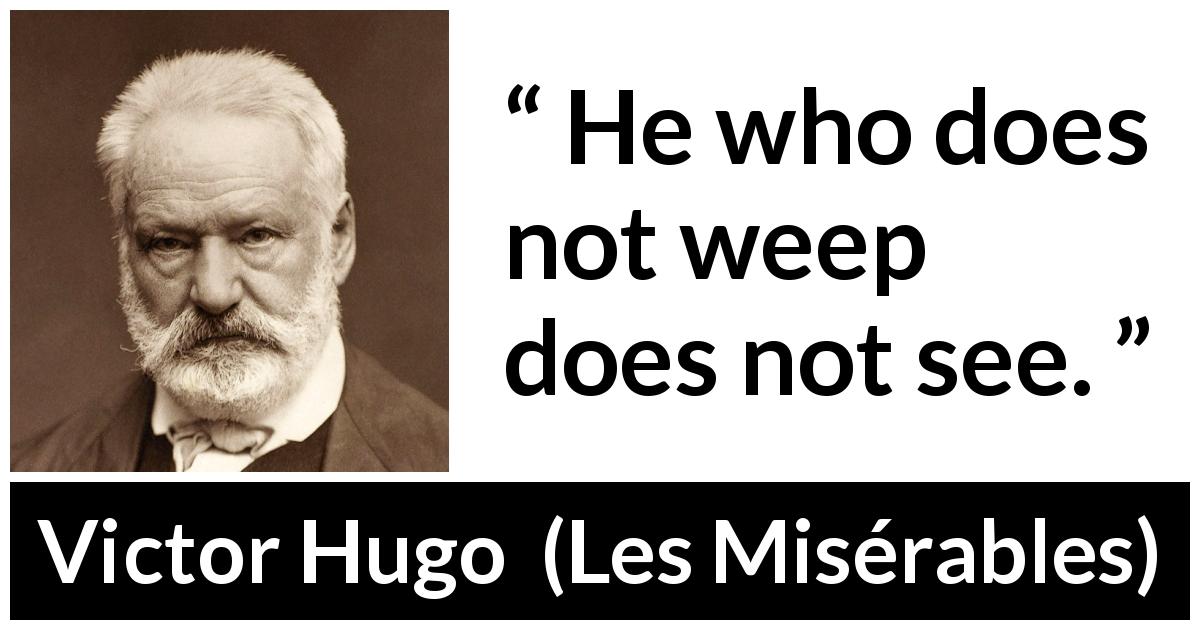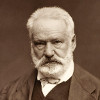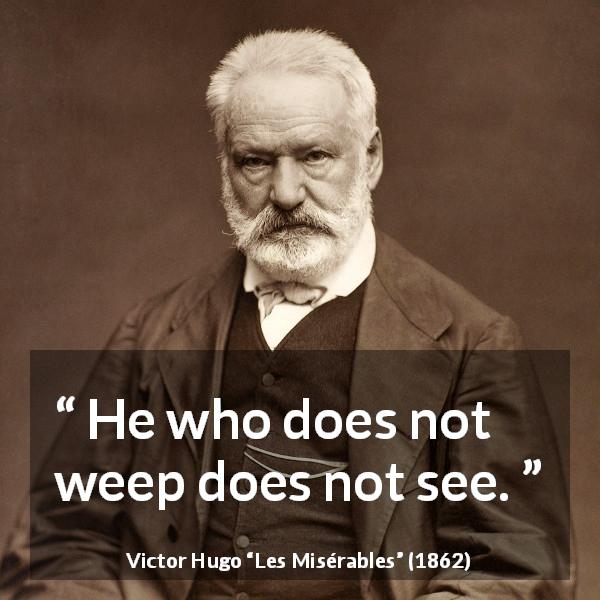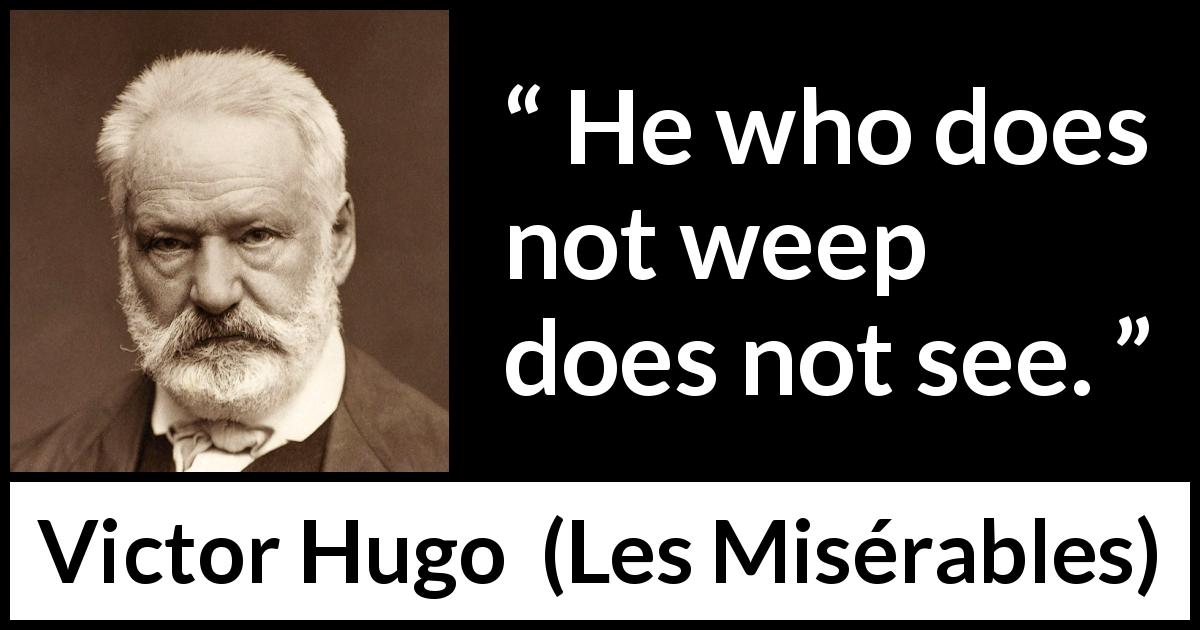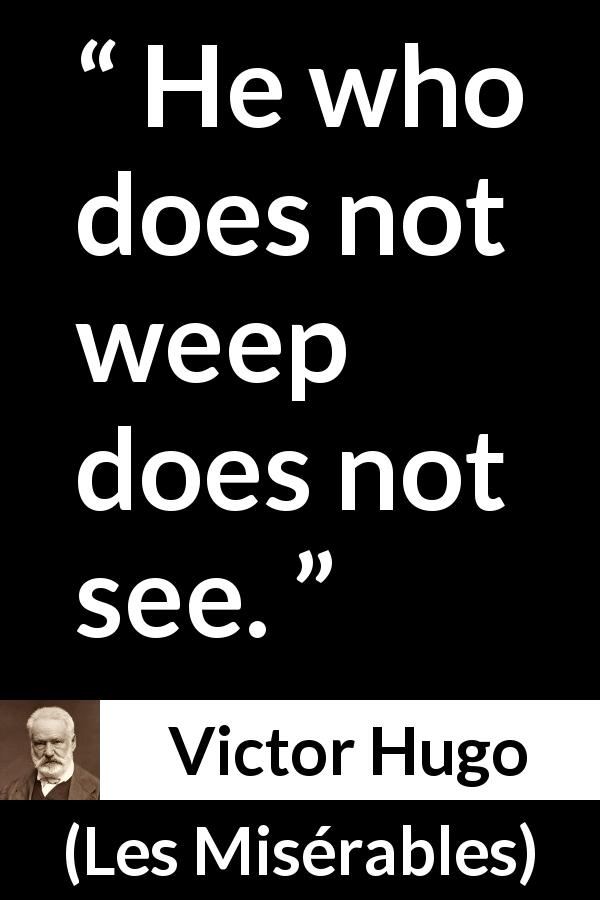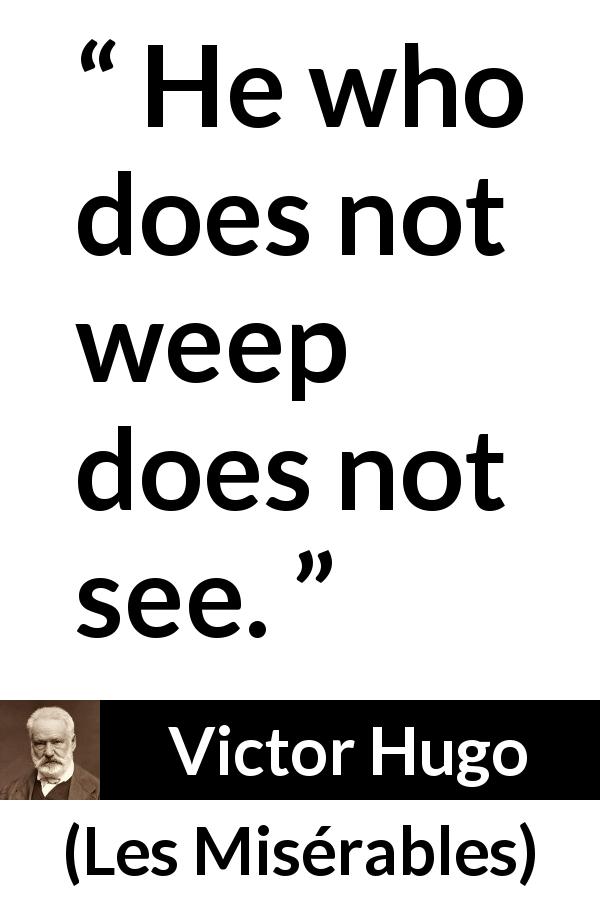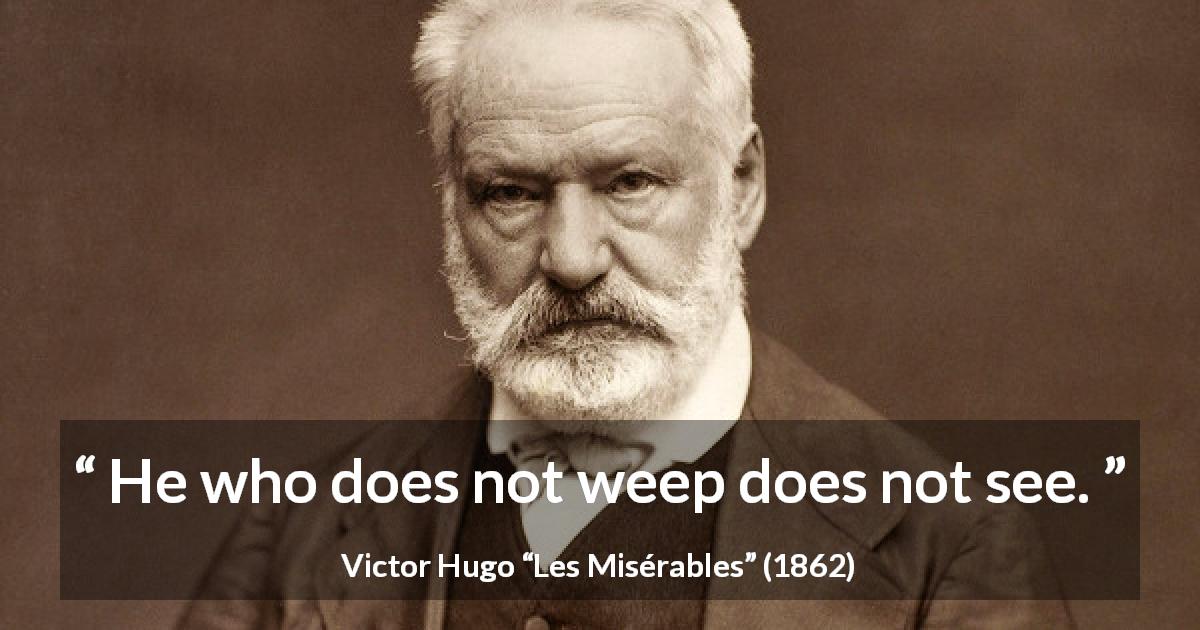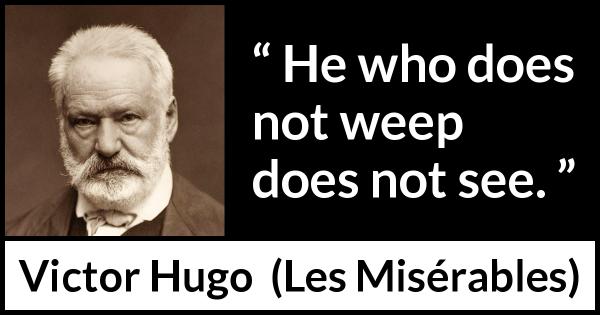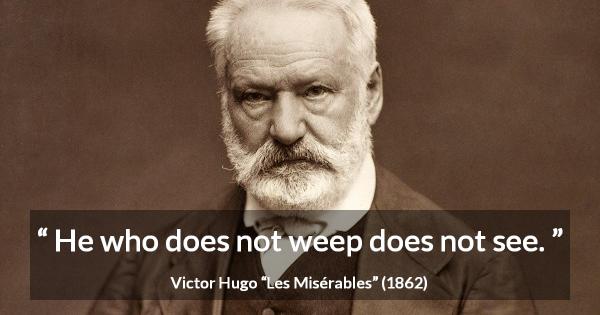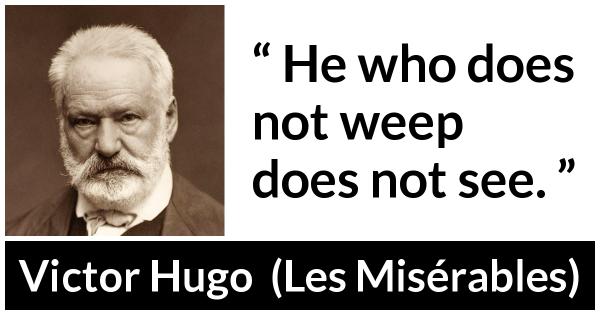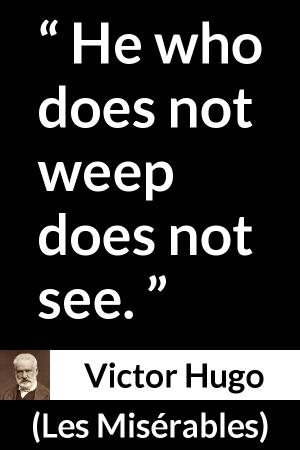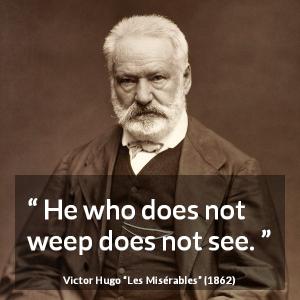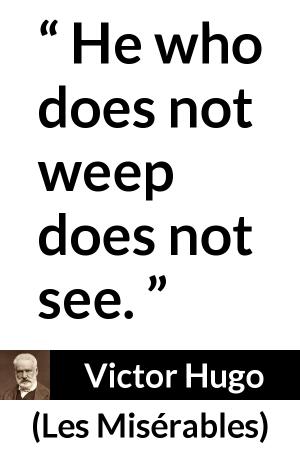“ He who does not weep does not see. ”
Victor Hugo, Les Misérables (1862). copy citation
| Author | Victor Hugo |
|---|---|
| Source | Les Misérables |
| Topic | sight sorrow crying |
| Date | 1862 |
| Language | English |
| Reference | |
| Note | Translation by Isabel F. Hapgood in 1887 |
| Weblink | http://www.gutenberg.org/files/135/135-h/135-h.htm |
Context
“La Fontaine perhaps; magnificent egoists of the infinite, tranquil spectators of sorrow, who do not behold Nero if the weather be fair, for whom the sun conceals the funeral pile, who would look on at an execution by the guillotine in the search for an effect of light, who hear neither the cry nor the sob, nor the death rattle, nor the alarm peal, for whom everything is well, since there is a month of May, who, so long as there are clouds of purple and gold above their heads, declare themselves content, and who are determined to be happy until the radiance of the stars and the songs of the birds are exhausted.
These are dark radiances. They have no suspicion that they are to be pitied. Certainly they are so. He who does not weep does not see. They are to be admired and pitied, as one would both pity and admire a being at once night and day, without eyes beneath his lashes but with a star on his brow.
The indifference of these thinkers, is, according to some, a superior philosophy.” source
These are dark radiances. They have no suspicion that they are to be pitied. Certainly they are so. He who does not weep does not see. They are to be admired and pitied, as one would both pity and admire a being at once night and day, without eyes beneath his lashes but with a star on his brow.
The indifference of these thinkers, is, according to some, a superior philosophy.” source
Original quote
